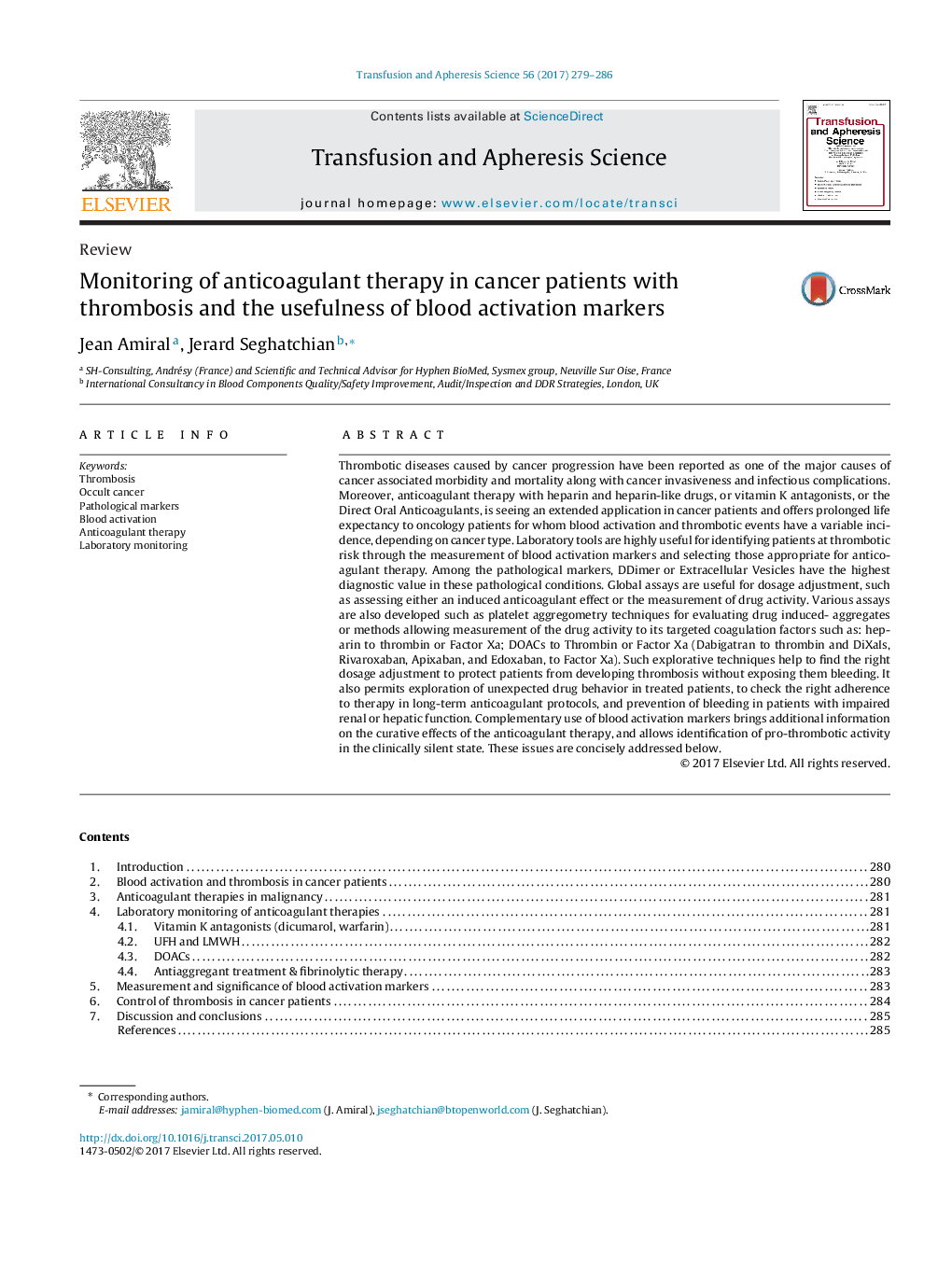| کد مقاله | کد نشریه | سال انتشار | مقاله انگلیسی | نسخه تمام متن |
|---|---|---|---|---|
| 5664628 | 1407716 | 2017 | 8 صفحه PDF | دانلود رایگان |
Thrombotic diseases caused by cancer progression have been reported as one of the major causes of cancer associated morbidity and mortality along with cancer invasiveness and infectious complications. Moreover, anticoagulant therapy with heparin and heparin-like drugs, or vitamin K antagonists, or the Direct Oral Anticoagulants, is seeing an extended application in cancer patients and offers prolonged life expectancy to oncology patients for whom blood activation and thrombotic events have a variable incidence, depending on cancer type. Laboratory tools are highly useful for identifying patients at thrombotic risk through the measurement of blood activation markers and selecting those appropriate for anticoagulant therapy. Among the pathological markers, DDimer or Extracellular Vesicles have the highest diagnostic value in these pathological conditions. Global assays are useful for dosage adjustment, such as assessing either an induced anticoagulant effect or the measurement of drug activity. Various assays are also developed such as platelet aggregometry techniques for evaluating drug induced- aggregates or methods allowing measurement of the drug activity to its targeted coagulation factors such as: heparin to thrombin or Factor Xa; DOACs to Thrombin or Factor Xa (Dabigatran to thrombin and DiXaIs, Rivaroxaban, Apixaban, and Edoxaban, to Factor Xa). Such explorative techniques help to find the right dosage adjustment to protect patients from developing thrombosis without exposing them bleeding. It also permits exploration of unexpected drug behavior in treated patients, to check the right adherence to therapy in long-term anticoagulant protocols, and prevention of bleeding in patients with impaired renal or hepatic function. Complementary use of blood activation markers brings additional information on the curative effects of the anticoagulant therapy, and allows identification of pro-thrombotic activity in the clinically silent state. These issues are concisely addressed below.
Journal: Transfusion and Apheresis Science - Volume 56, Issue 3, June 2017, Pages 279-286
